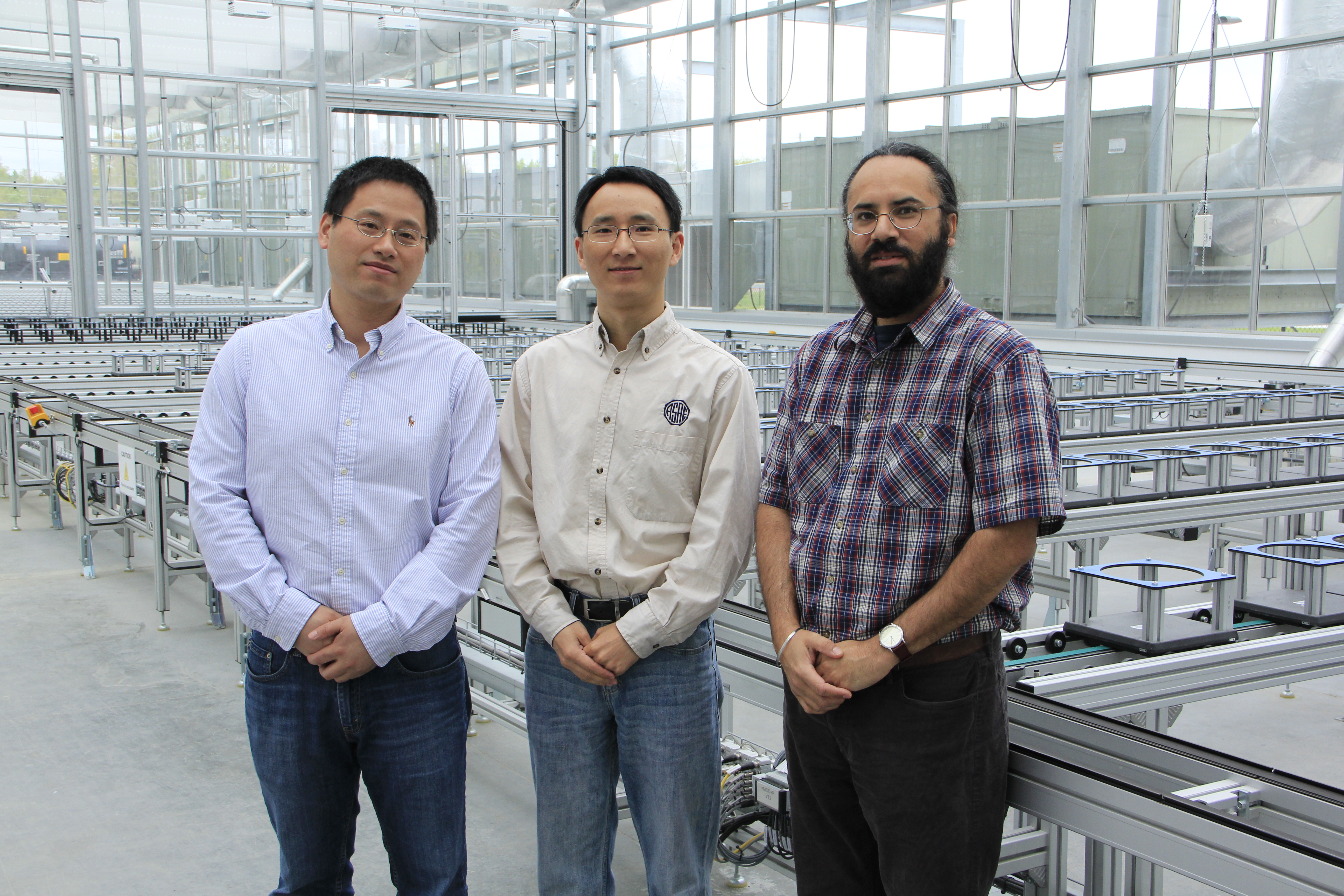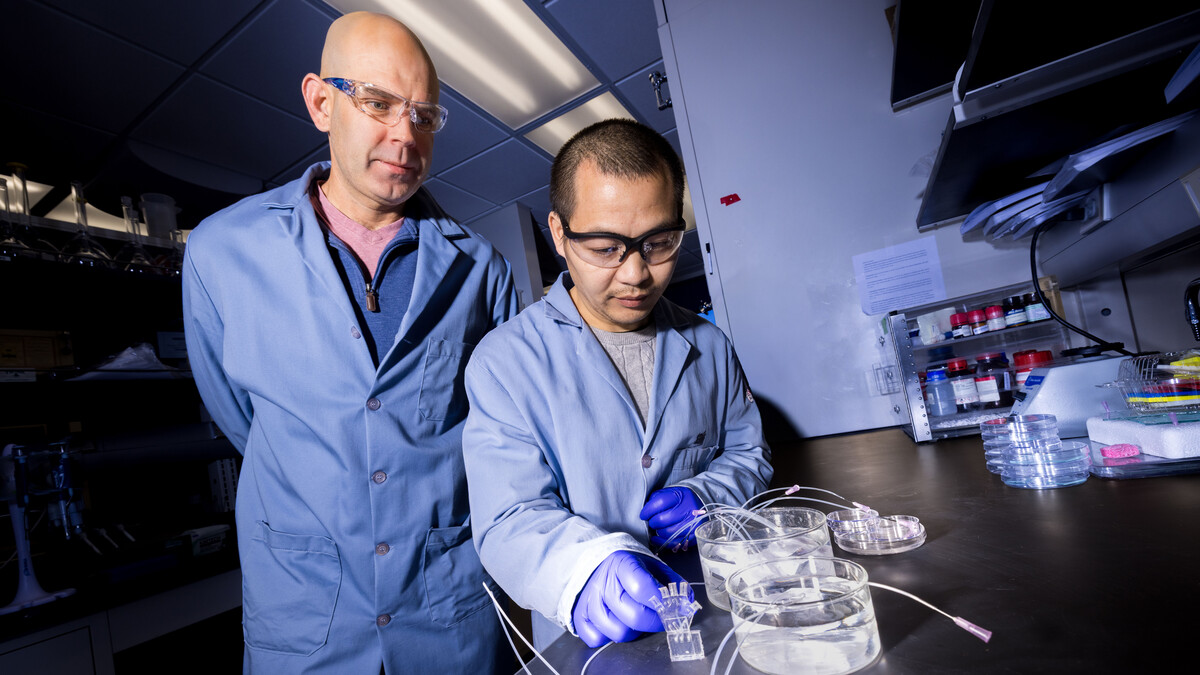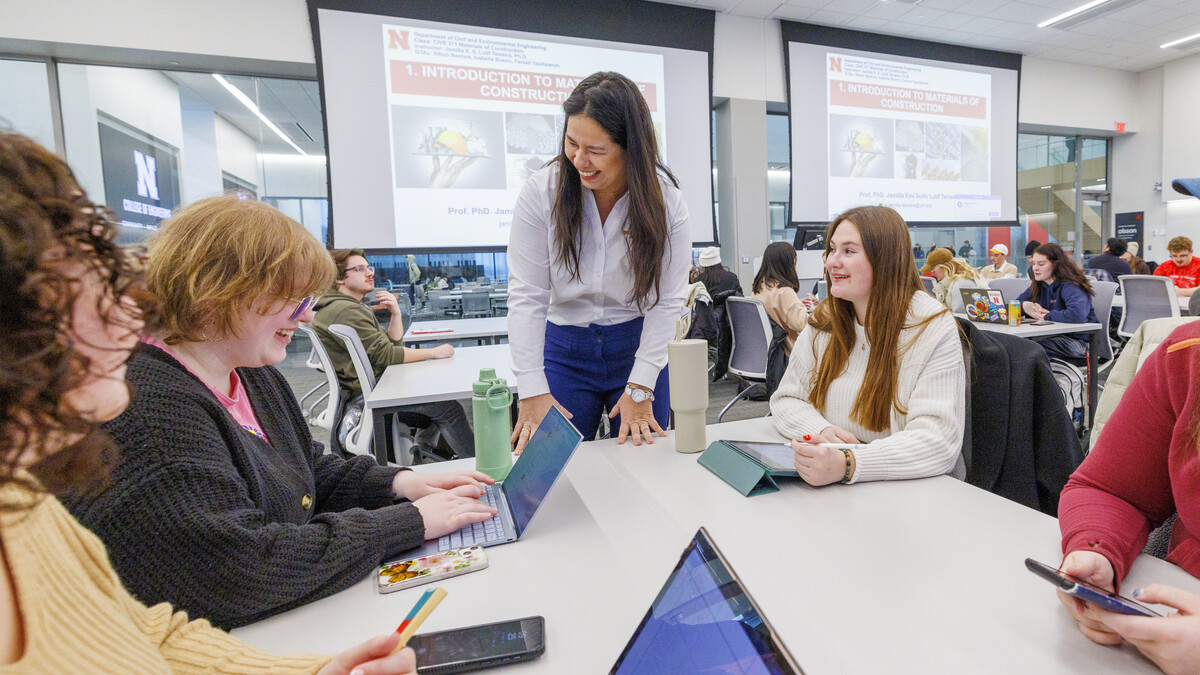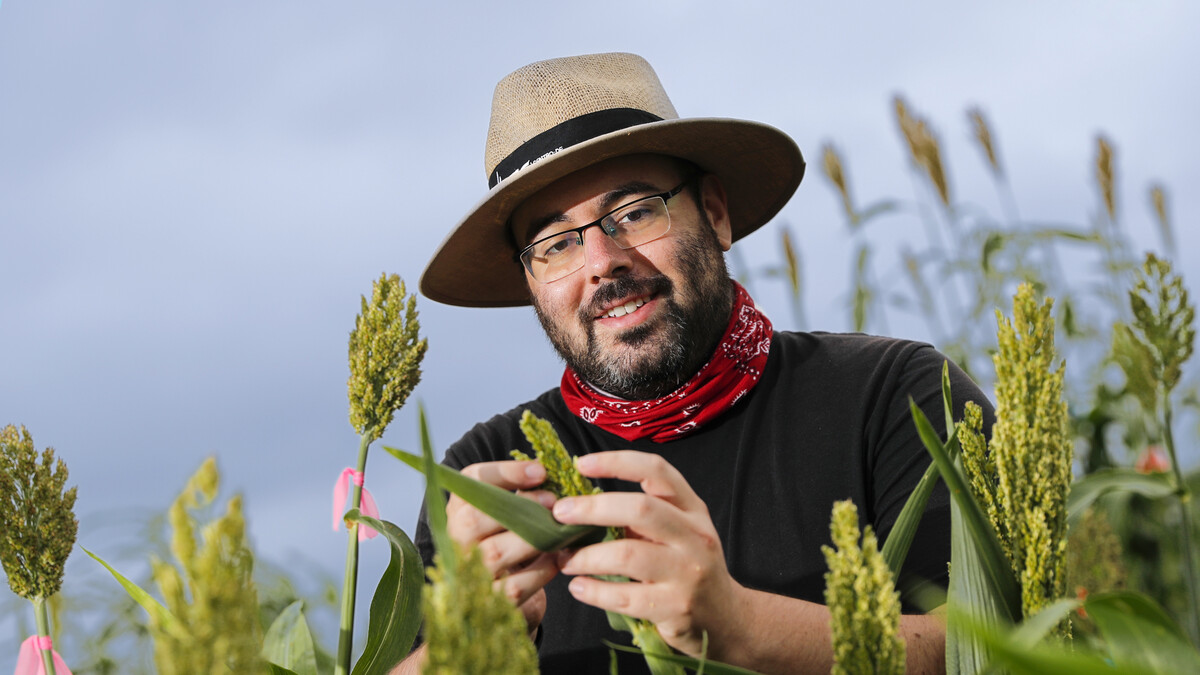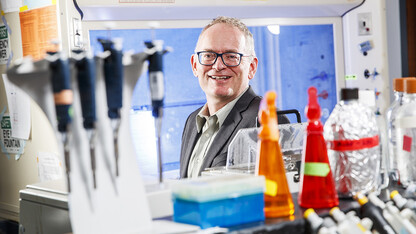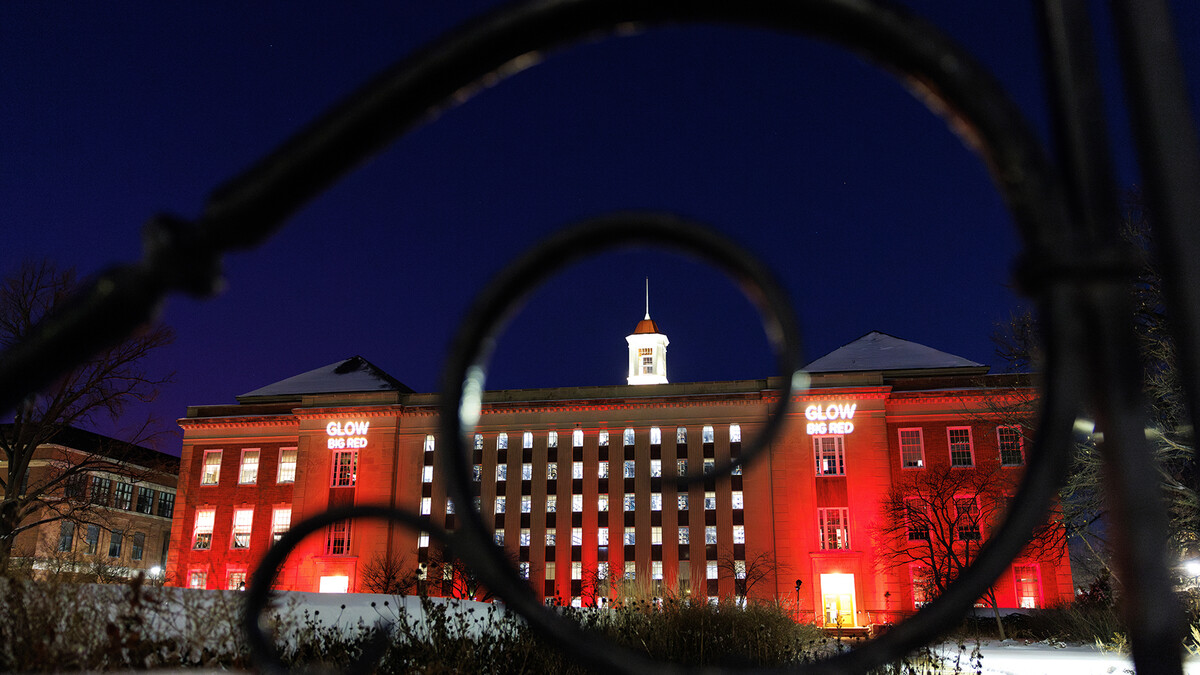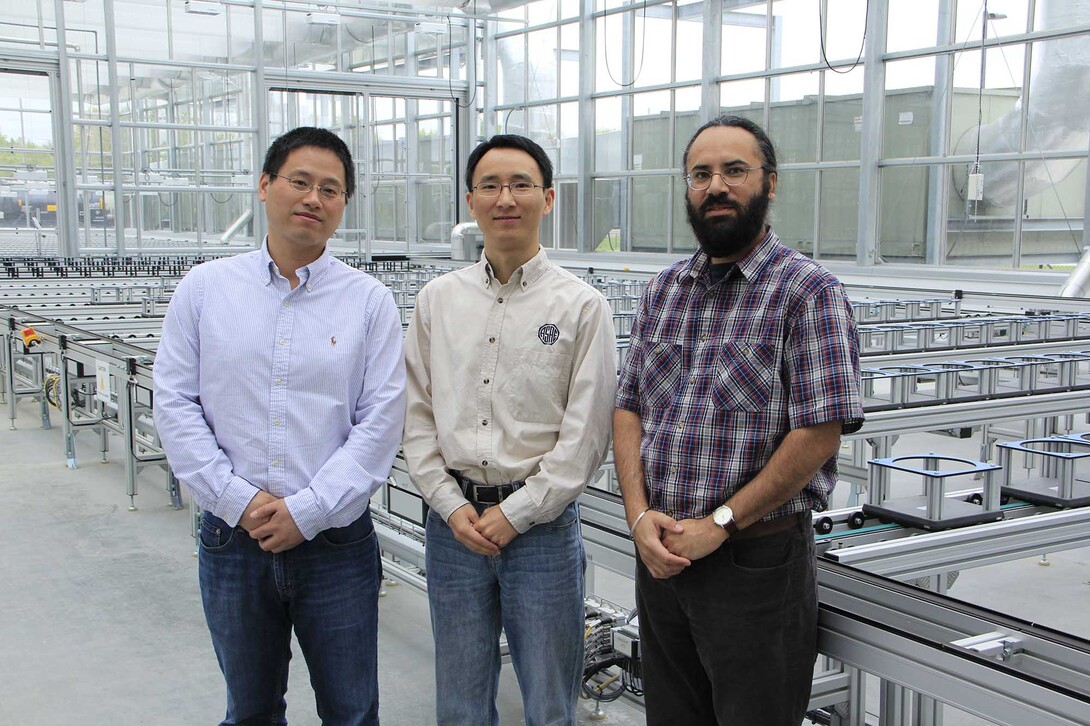
With support from a National Science Foundation grant, University of Nebraska-Lincoln researchers are developing a new tool that will help them better identify plant characteristics that are critical to improving crop performance.
The three-year, $534,194 grant will be used to develop an instrument that will improve capacity, sensitivity and throughput for plant phenotyping.
Producing enough food and energy for a world population of more than 9 billion by the year 2050 is the greatest challenge facing agriculture. To solve the looming global food security challenge, crop stress tolerance and yields must increase. Researchers around the world are studying plant characteristics, or phenotypes, at high throughput and high resolution to identify opportunities to improve crop performance.
Currently, it is difficult to reconstruct a three-dimensional structure of a plant from its digital images alone. The multi-wavelength laser imaging and ranging instrument being developed as a result of this grant will simultaneously probe chemical properties of plants, such as water, nitrogen and chlorophyll concentration, while also measuring 3D plant structure, such as leaf orientation and angular distribution. The measurements will tell researchers more information about plant physiology and function.
“The instrument being developed through this research will allow for more efficient phenotype characterization and analysis, which will lead to accelerated crop improvement,” said Yufeng Ge, assistant professor in the Department of Biological Systems Engineering and an investigator on the project.
UNL is a world leader in phenotyping research due in part to the cutting-edge Greenhouse Innovation Center at Nebraska Innovation Campus, where the instrument development will occur. The center features 45,000 square feet of greenhouse and headhouse space, state-of-the-art computer environmental controls and 22-foot eve heights to allow for optimal air circulation. When completed, the center will include 60,000 square feet of greenhouse space connected to 80,000 square feet of office and wet lab space.
“The phenotyping greenhouse at Nebraska Innovation Campus is a one-of-a-kind facility and can be a test bed for more advanced phenotyping technologies and methods,” Ge said. “We are fortunate and very excited that we can leverage this nice facility for the instrument development.”
In addition to Ge, other researchers working on the project are Hongfeng Yu, assistant professor in the Department of Computer Science and Engineering, and Harkamal Walia, associate professor in the Department of Agronomy and Horticulture. The interdisciplinary team plans to foster a collaborative environment where postdoctoral, graduate and undergraduate students will receive interdisciplinary training in plant biology, biological engineering and computer science.
